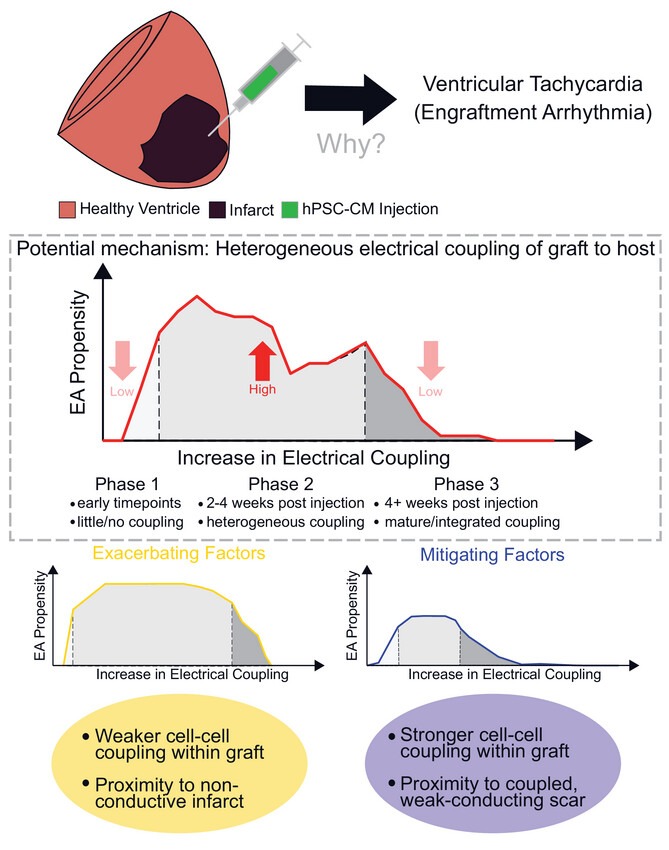We are thrilled to share that CardSS Lab PhD Student Chelsea Gibbs has published her first paper as lead author for research related to her dissertation. The article is entitled “Graft–host coupling changes can lead to engraftment arrhythmia: a computational study”. This work is a product of our exciting collaboration with Dr. Chuck Murry and other members of his team, working at UW’s Institute for Stem Cell & Regenerative Medicine (ISCRM; pron. “ice cream”).

In this paper, we use models reconstructed from histology images to shed new light on potential mechanisms that might explain the incidence of potentially lethal runs of ventricular tachycardia following transplantation of cardiomyocyte-like cells derived from human pluripotent stem cells (i.e., hPSC-CM) to re-muscularize the infarcted heart. Our work is a departure from prior attempts to simulate hPSC-CM therapy since uses an image-based representation of engrafted tissue, host myocardium, and scar. Our findings suggest that the wax and wane of engraftment arrhythmia following hPSC-CM transplantation may be in part explained by spatiotemporally heterogeneous evolution of electrical coupling with the surrounding heart cells.
The work in this paper involved a huge amount of work by members of both labs, especially Chelsea! Huge congratulations to her for a major milestone in her PhD work. Lab Alum Kelly Zhang also contributed to this work, assisting in the openCARP implementation of the cell-scale hPSC-CM model.
Here is the public-facing link for the article (paywalled; sorry, no open-access version available yet!)
Here is the library link for UW community members (UWID login required).
Computational models and files needed to reproduce and/or extend the work are available for free in the associated data repository on Dryad.
